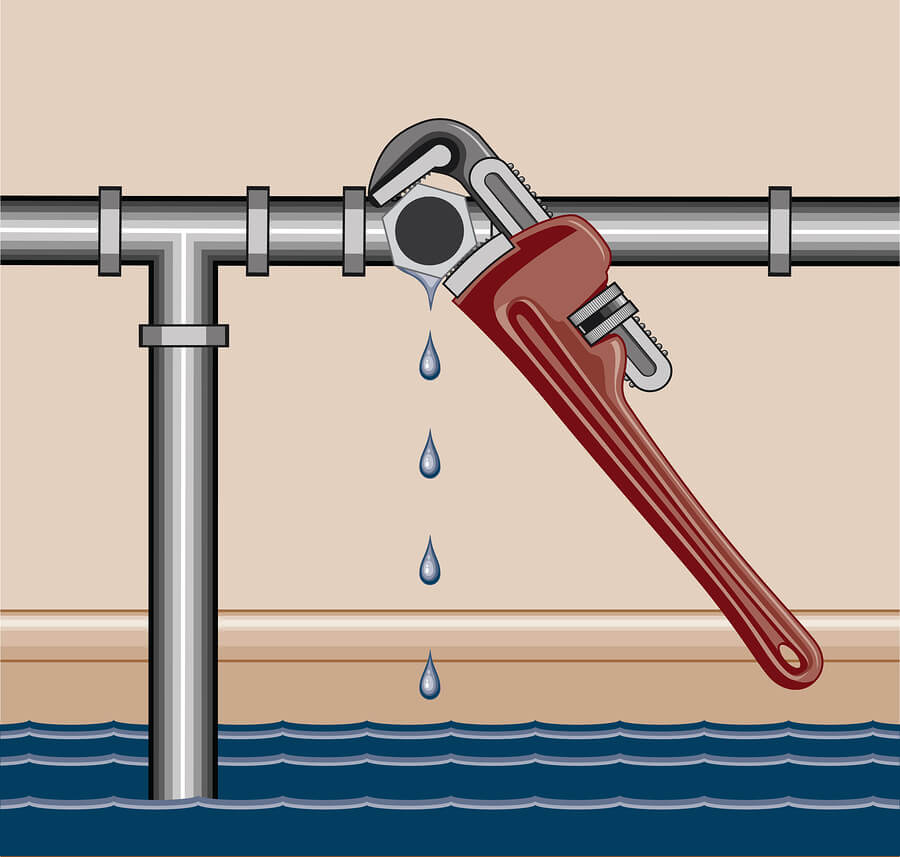The Home's Primary Frequent Leak Triggers: Examination
The Home's Primary Frequent Leak Triggers: Examination
Blog Article
What are your insights and beliefs about Common Water Leaks In House?

Leakages not just cause waste of water however can additionally trigger unneeded damages to your house as well as promote unwanted natural development. Water leaks could go undetected because many of the pipework in our house is hidden. By recognizing and also looking for day-to-day scenarios that trigger leakages, you can secure your house from future leaks as well as unnecessary damage. Today, we will check out six leak causes that might be triggering your pipelines to leak.
Instant temperature modifications.
Severe temperature level adjustments in our pipelines can create them to expand as well as get suddenly. This expansion and tightening may cause splits in the pipes, particularly if the temperature level are below freezing.
Corroded water supply
As time passes by, your plumbing system ages and corrosion such as rust may start eating away the pipes. This could be the reason for discoloration or bending on your pipes. This requires an inspection with your plumber quickly. If our plumbing system is old, consider replacing the pipelines since they are at a greater danger of deterioration than the newer versions.
Faulty Pipe Joints
The factor at which your pipelines attach is frequently the weakest web link in the waterline. Pipeline joints can degrade gradually, leading to water leakages. The majority of pipe joints are not conveniently visible. If you have loud pipes that make ticking or banging sounds, especially when the warm water is switched on, your pipe joints are probably under a great deal of stress. It is recommended to have your plumber check your system once a year.
Intruding origins
Many water leaks start outside the home instead than inside it. You might see wet spots or sinkholes in your yard, as well as that could indicate that tree origins are getting into water lines causing water to leak out.
Poor Water Connectors
At times, a leakage can be triggered by loose tubes as well as pipelines that provide your appliances. In instance of a water connections leakage, you may discover water running straight from the supply line or pools around your devices.
Obstructed Drains
Clogged drains might be frustrating as well as inconveniencing, but they can sometimes wind up causing an overflow bring about rupture pipes. Keep removing any type of products that may go down your drains pipes that could block them to stay clear of such hassles.
All the above are sources of leakages but not all water leakages result from plumbing leaks; some leakages might originate from roofing leakages. All leaks must be fixed quickly to prevent water damages.
Leaks not just cause waste of water yet can likewise create unneeded damages to your home and advertise unwanted organic development. By looking as well as understanding for everyday circumstances that create leaks, you can secure your home from future leaks and unnecessary damages. Today, we will look at six leak creates that might be creating your pipelines to leak.
At times, a leak can be caused by loose hose pipes and also pipes that supply your home appliances. In case of a water connections leakage, you might notice water running straight from the supply line or pools around your appliances.
How To Check For Water Leak In Your Home
How To Check for Leaks
The average household's leaks can account for nearly 10,000 gallons of water wasted every year and ten percent of homes have leaks that waste 90 gallons or more per day. Common types of leaks found in the home are worn toilet flappers, dripping faucets, and other leaking valves. These types of leaks are often easy to fix, requiring only a few tools and hardware that can pay for themselves in water savings. Fixing easily corrected household water leaks can save homeowners about 10 percent on their water bills.
To check for leaks in your home, you first need to determine whether you're wasting water and then identify the source of the leak. Here are some tips for finding leaks:
Take a look at your water usage during a colder month, such as January or February. If a family of four exceeds 12,000 gallons per month, there are serious leaks.
Check your water meter before and after a two-hour period when no water is being used. If the meter changes at all, you probably have a leak.
Identify toilet leaks by placing a drop of food coloring in the toilet tank. If any color shows up in the bowl after 10 minutes, you have a leak. (Be sure to flush immediately after the experiment to avoid staining the tank.)
Examine faucet gaskets and pipe fittings for any water on the outside of the pipe to check for surface leaks.
Undetected water leaks can happen without the home or business owner even realizing. If you suspect a water leak, but not able to find the source. It is time to contact a professional water leak detection service, The Leak Doctor.
How To Find a Water Leak In Your Home
https://www.leakdoctor.com/blog/How-To-Check-For-Water-Leak-In-Your-Home_AE197.html

I came across that blog posting on How to detect water leaks in your home while perusing the search engines. Sharing is nice. Who knows, you may be helping someone out. Thank you for taking the time to read it.
Expert diagnostics offered. Report this page